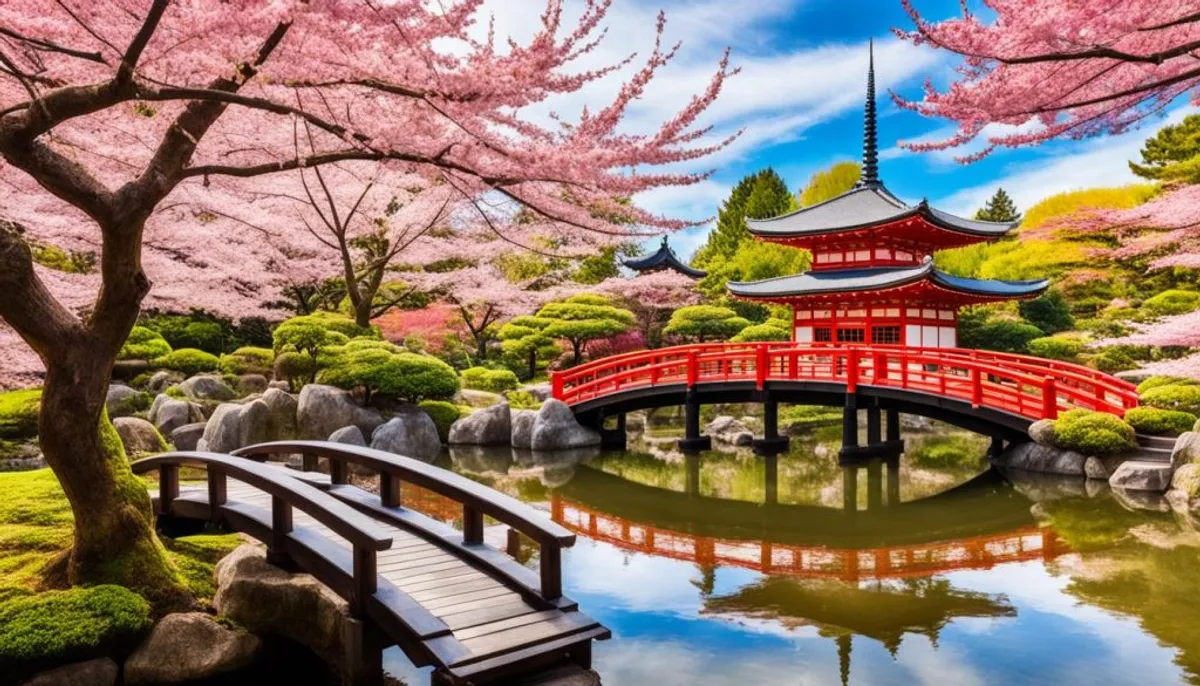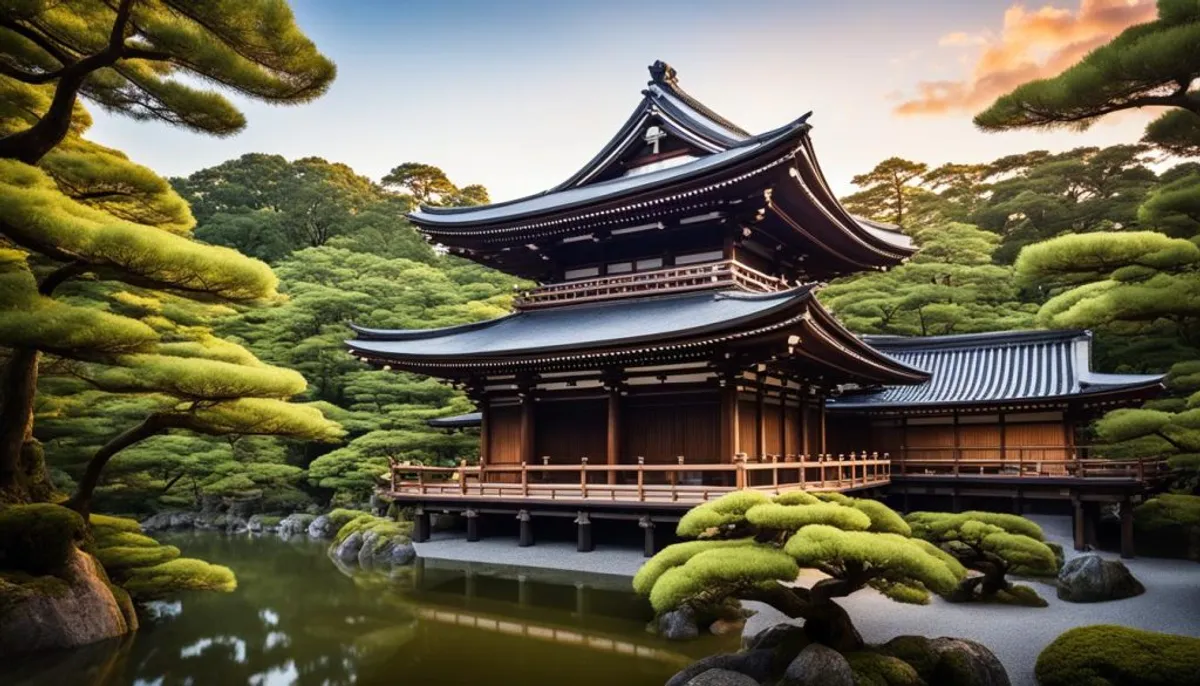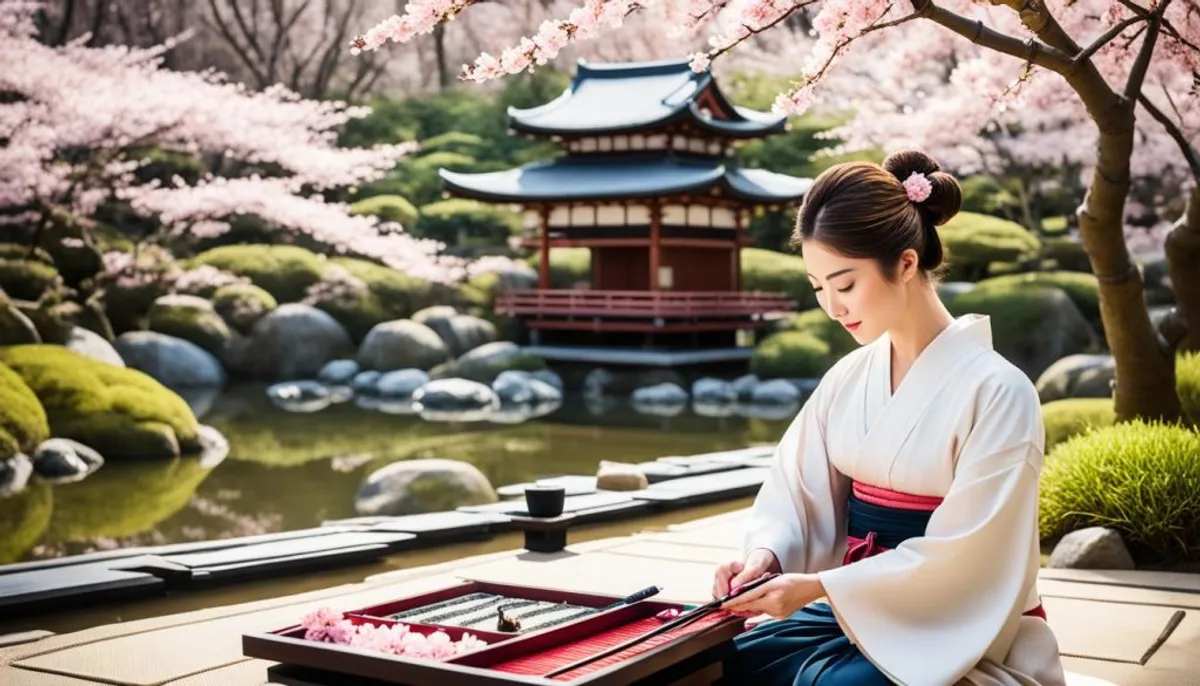Dive into the fascinating world of Japanese culture. It is a blend of tradition and modernity. This makes it unique and captivating.
When visiting Japan, you will discover a medieval world. Yet, at any moment, towers and skyscrapers will emerge. It is an astonishing mix of past and present.
The Japanese culture has been influenced by China and Korea. But it maintains its identity. Japan knows how to integrate foreign influences while staying true to itself.
This culture is complex and coherent. It seems to have always been this way. That is what makes it so fascinating.

Japanese Cultural Heritage and Ancestral Traditions
Japan is rich in Japanese traditions and Japanese customs. These traditions create the Japanese way of life and the rules of politeness in Japan. Before visiting, knowing these key aspects of Japanese culture is essential.
Greeting is a major tradition in Japan. When meeting someone, one must bow. The bowing varies according to respect and hierarchy. Punctuality is also crucial, as being late shows a lack of respect.
Daily life in Japan is marked by Shintoism and Buddhism. These ancient religions are still very present in today's Japanese society.
Customs and Traditions of Japan
- Greet by bowing
- Be punctual
- Adopt a certain modesty and politeness
- Respect religious traditions (Shintoism and Buddhism)
Japanese traditions and customs are essential to the Japanese way of life and the rules of politeness in Japan. They make the stay in Japan culturally rich and enriching, especially thanks to the ancestral traditions that are passed down from generation to generation.
Cuisine, Architecture, and Traditional Festivities
The Japanese cuisine is highly appreciated outside of Asia, but its traditional side is less known. It is rich in vegetables, fish, soups, and white rice. Sushi, fugu, and gyozas are typical dishes of this unique Japanese gastronomy.
The Japanese architecture is full of temples and shrines. The Meiji-Jingu and the Sengaku-ji in Tokyo beautifully showcase this architectural beauty.
Japanese festivals are numerous and varied. Some are linked to religion or seasons, while others are more modern. These traditional Japanese festivities joyfully showcase the culture of Japan.
| Traditional Japanese Dishes | Main Japanese Festivals |
|---|---|
|
|

All About Japanese Culture: Spirituality, Arts, and Leisure
Japan is a country rich in culture. It blends tradition and modernity. Japanese spirituality, traditional Japanese arts, and Japanese leisure activities showcase the diversity of Japanese culture, particularly through practices such as Shintoism and Buddhism.
Traditional arts such as Ikebana, the tea ceremony, ceramics, porcelain, and bonsai are very important. They demonstrate respect for nature and beauty. They have been passed down from generation to generation.
Modern life in Japan includes leisure activities such as karaoke, pachinko, kawaii culture, and manga. These pastimes are very popular and fascinate the world.
- Discover traditional Japanese arts such as Ikebana, the tea ceremony, and bonsai
- Explore Japanese spirituality and its impact on the country's culture
- Dive into modern leisure activities that have made Japan a global reference, from karaoke to manga

Japanese culture ranges from tradition to modernity. It offers a fascinating journey through its ancestral practices, spirituality, and leisure activities. This showcases the richness and diversity of this unique country.
Japanese Martial Arts and National Sports
Martial arts are very important in Japanese culture. They have been passed down from generation to generation. Japan is known for aikido, judo, karate, kendo, and kyudo. Sumo is a highly respected national sport.
Sumo, Karate, Judo, and Other Ancestral Disciplines
Sumo is more than just a sport. It is a blend of rites and religious gestures. It has long showcased Japanese culture and tradition. Baseball and golf are also very popular in Japan.
Karate and judo are recognized worldwide. They demonstrate the international influence of Japanese martial arts. These practices reflect Japanese philosophy and discipline.
| Japanese Martial Arts | Origin | Main Characteristics |
|---|---|---|
| Sumo | Japan | Traditional wrestling with rites and religious gestures |
| Karate | Okinawa, Japan | Hand-to-hand combat martial art |
| Judo | Japan | Throwing and submission martial art |
Each Japanese martial art has its own techniques and philosophies. But they are all linked to Japanese tradition and culture. These ancient disciplines create Japan's sporting identity and cultural heritage.
Conclusion
Japanese culture is a precious treasure, created by centuries of traditions and innovations. It includes martial arts such as sumo and karate, as well as tea ceremonies. Japan is also known for its cuisine, appreciated worldwide.
If you love manga and Japanese animation, or if you are interested in Buddhism and Shintoism, a trip to Japan is ideal. It will allow you to immerse yourself in this rich and complex culture.
Japan offers beautiful discoveries, from temples to onsens, as well as modern cities and natural landscapes. You will surely be surprised and captivated. Prepare to experience a unique cultural experience that will change your worldview.
RelatedRelated articles


